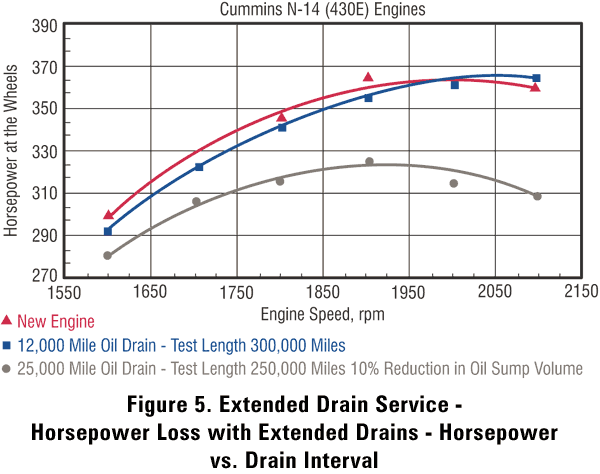Originally Posted By: Quattro Pete
Originally Posted By: friendly_jacek
see figure 1 from reference 9.
true or false?
The chart is comparing 12K mile OCI with 25K mile OCI. The reference article was written in 2001, based on a study presumably done before that, and presumably on mineral oil, since they did not mention it was synthetic. Maybe I'm wrong on this.
I'm not surprised that they noticed issues with running API SJ (or equivalent) mineral oil out to 25K miles, regardless of large sump size.
Here is that reference article:
http://www.machinerylubrication.com/Read/238/extended-oil-drains
exactly, my question deals with this very point. i don't agree with rest of the article as the ZDDPplus is concerned with sale of additives and they have a conflict of interest on the OCI issue.
the specific issue is this:
Quote:
Increased Ring Wear and Reduced Engine Power
In extending the oil drain interval, there is an increase in the oil contamination, combined with a reduction in the oil base reserve (BN). The end result can be a loss in power. In severe field testing in Canada with 430 hp engines, it was found that extending the oil drain from 12,000 miles to 25,000 miles combined with a reduced sump volume resulted in a loss of power, as measured on a chassis dynamometer (Figure 5). This loss was believed to result from increased ring face and groove wear, which increased engine blow-by.
not sure if this is an issue with soot loading or the 10% decrease in oil volume.


